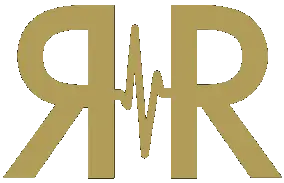What Is The Most Important Thing On a Resume?
With so many resume tips and advice out there, what is the most important thing on a resume? Most people believe that the most important thing on a resume is your work experience. However, other parts of your resume can be just as important during the hiring process.
To ensure that your resume is tailored to the job you are applying for, we’ve put together a list of the five most important things to include on your resume.
Why Are Different Parts of a Resume Important?
Like a well-written novel, a resume should tell your story and have a clear beginning, middle, and end. The beginning of your resume, also known as the contact section, is where you list your name and contact information. The middle of your resume, or the body, is where you list your experience and skills. And finally, the end of your resume is where you include any awards or achievements and references that are relevant to the job you are applying for.
Making sure that each section of your resume is given the appropriate amount of attention is crucial to ensuring that your resume is tailored to the job you are applying for.
What Are The Main Parts of a Resume?
Despite the importance of all the different sections of a resume, there are five that should always be included:
- The contact information section
- The summary
- The experience section
- The skills section
- The education section
While each of these sections is important, some will be more important than others depending on the job you are applying for.
5 Most Important Areas On A Resume
Here are the five most important things to include on your resume, no matter what job you are applying for:
Contact Section
The first and most important thing to include on your resume is your contact information. This may seem like a no-brainer, but you’d be surprised how many people forget to include their name or email address on their resume.
Make sure that your name is listed prominently at the top of your resume and that your contact information is easy to find. Be sure to list an email address that you check regularly as this is often the first way employers will try to reach out to you.
Summary
The next most important thing on your resume is a summary of who you are and what you do. Think of this as your elevator pitch – it should be a brief overview of your experience and skills that tells the employer what you can bring to the table.
When writing your summary, be sure to use language that is easy to understand and avoid using jargon or acronyms. You want the employer to be able to understand what you do without having to look up what every word means.
Experience
After your summary, you’ll want to include a section on your experience. This is where you’ll list all of the places you’ve worked in the past and what your responsibilities were at each job.
When listing your experience, be sure to use specific examples of times when you’ve excelled at work. For example, if you’re applying for a job in customer service, you might want to include a time when you went above and beyond to help a customer.
Skills
In addition to your experience, you’ll also want to highlight your skills. This is what makes you qualified for the job you’re applying for and sets you apart from other candidates.
When listing your skills, be sure to use industry-specific terms that will show the employer that you know what you’re talking about. For example, if you’re applying for a job in social media, be sure to list skills like content creation, copywriting, and Photoshop.
Education
Finally, don’t forget to include your education on your resume. Even if you didn’t go to college, any certiations, classes, or other education is imperative.
If you did go to college, be sure to include the name of the school, the degree you earned, and any relevant coursework. Employers want to see that you have the necessary education for the job you’re applying for.
Bonus Items To Include On Resume
In addition to the five things listed above, there are a few other items that can be helpful to include on your resume:
Awards/Achievements
If you have won any awards or achieved anything noteworthy, be sure to include it on your resume. This can show employers that you are a high-achieving individual who is dedicated to your work.
Languages
If you are fluent in any language other than English, be sure to include it on your resume. This can be a valuable skill for employers, especially if they are looking for someone who can communicate with clients or customers who speak another language.
Community Service
If you have done any community service, this is also something that can be included on your resume. This shows that you are committed to giving back to your community and that you have leadership skills.
Why You Need A Professional Resume Critique
Once you have all of the above information on your resume, it’s important to get a professional opinion before you start applying for jobs. A professional resume critique can help you identify any areas that need improvement and give you feedback on what looks good.
If you’re not sure where to start, there are a few resume writing services that offer free resume critiques. This is a great way to get started and make sure your resume is in tip-top shape before you start applying for jobs.
Don’t Let You Resume Fall Flat, Get Expert Help Now!
A resume tells a story – make sure yours is one worth reading. If you’re not sure where to start, our team of expert resume coaches can help. We offer a host of services to make sure your resume is the best it can be, including critiquing and revamping your resume to reflect you in the best light.
Make sure your resume is telling the right story – contact us today for a free consultation!




